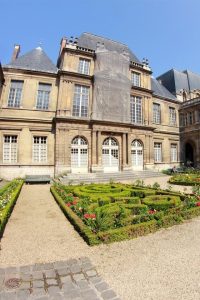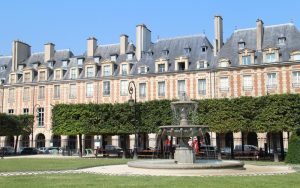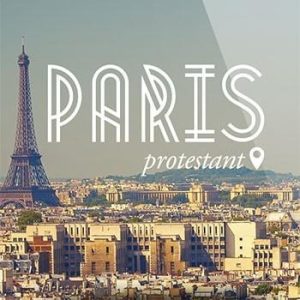The Protestant sculptor Jean Goujon decorated the windows with high reliefs depicting the four seasons. In the 19th century the mansion was significantly enlarged.
The Musée Carnavalet inside the mansion houses objects and documents about the History of Paris from the 16th century until the Belle Epoque -late 19th and early 20th centuries.
The Place des Vosges
King Henri IV decided to have the Place des Vosges, then called Place Royale, built. The architects Androuet du Cerceau and Salomon de Brosse undertook the work.
Several Protestants lived there, notably Barthélemy de Laffemas, supervisor of Trade under Henri IV.
Salomon de Brosse
He was born in 1565 and died in 1626. On Marie de Médicis’s request he designed the Palais du Luxembourg, presently Palais du Sénat. He also built the façade of the Eglise Saint-Gervais-Saint-Protais, and designed the second temple built in Charenton in 1623. The first built in 1607 was destroyed by a fire. The second temple was demolished after the Revocation of the Edict of Nantes in 1685.
Jean Goujon
He was born in 1510 and died in 1567, and was one of the greatest sculptors of the French Renaissance, designing allegorical figures for the Henri II wing on the Cour Carrée (Square Courtyard) of the Louvre. From 1552 to 1555 he sculpted the beautiful figures for the Hôtel Carnavalet courtyard and for the façade of the Fontaine des Innocents.



